Purchasing a semi-trailer is a significant investment, and as with any substantial acquisition, understanding your options can make all the difference between a thriving business and excessive spending. In this guide, we dive deep into the world of semi-trailers, offering insights on where to buy, how to evaluate options, and tips for making your purchase a success.
Understanding Semi-Trailers: Types and Uses
Before you consider where to buy a semi-trailer, it’s crucial to understand the various types available and their specific applications. Different trailers serve distinct purposes, and familiarity with these can guide your purchasing process.
Common Types of Semi-Trailers
| Type | Description | Ideal Use Cases |
|---|---|---|
| Flatbed Trailer | A trailer with no sides or roof, versatile for loading. | Transporting large equipment or building materials. |
| Reefer Trailer | Insulated trailers with refrigeration units. | Hauling perishable goods, pharmaceuticals, or temperature-sensitive materials. |
| Dry Van Trailer | Fully enclosed trailers, used for a wide variety of cargo. | Goods that require protection from weather conditions. |
| Tanker Trailer | Cylindrical-shaped trailers designed to carry liquids. | Transportation of fuels, chemicals, and food-grade liquids. |
| Lowboy Trailer | A trailer with a low deck height to carry tall and heavy loads. | Moving heavy machinery and oversized equipment. |
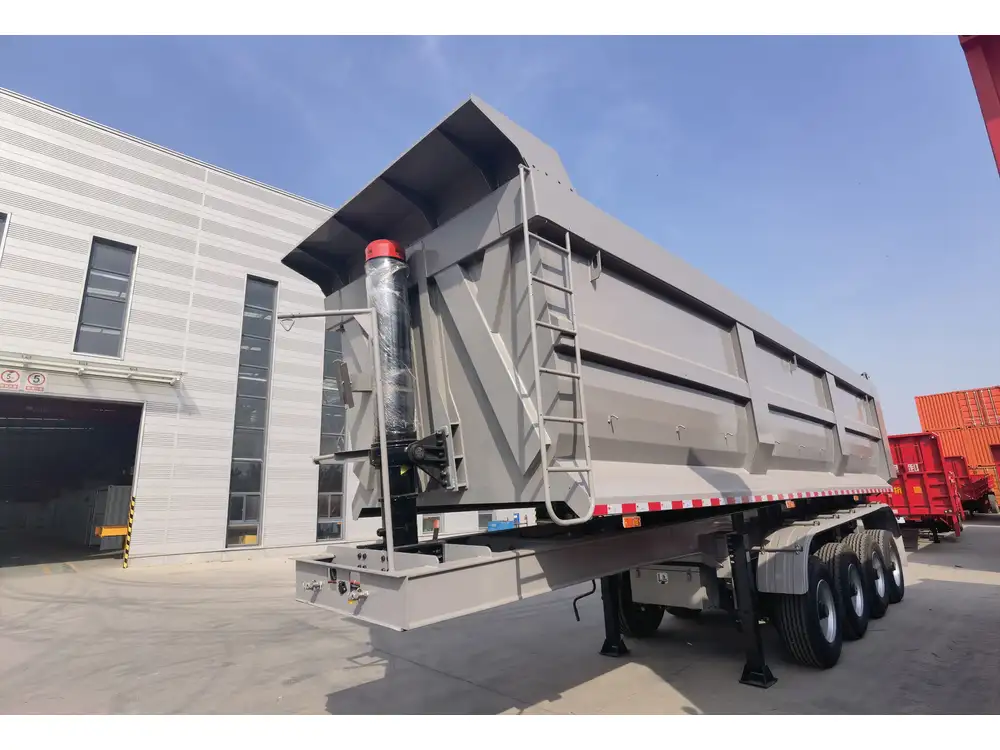
Determining Your Needs
Identifying the right type of semi-trailer tailored to your needs is paramount. Considerations might include:
- Cargo Type: What are you transporting? Is it heavy, sensitive, or oversized?
- Load Capacity: Ensure the trailer can handle your load requirements.
- Route Considerations: Will you primarily travel short distances or long hauls?
- Budget Constraints: Establish a clear budget for your trailer purchase.
Where to Buy a Semi-Trailer: Top Purchasing Options
1. Dealerships
Buying from registered dealerships is one of the most common and reliable methods. Dealerships often provide:
- Wide Selection: A variety of new and used trailers across different categories.
- Warranty Options: Many dealers offer warranties, ensuring post-purchase support.
- Financing Assistance: Options for financing can make acquiring a semi-trailer more manageable.
When choosing a dealership, research their reputation and ask for reviews from other customers. Dealer networks often provide a customer satisfaction guarantee and can assist with customization needs.

2. Online Marketplaces
In our digital age, online marketplaces are an increasingly viable option for purchasing semi-trailers. Platforms such as:
- eBay
- Trucker-to-Trucker
- Commercial Truck Trader
These sites allow you to compare prices and specifications from multiple sellers without leaving your home. Look for:
- Seller Ratings: High ratings often reflect reliable sellers.
- Detailed Listings: Comprehensive descriptions and pictures help gauge the trailer’s condition.
- Return Policies: Understand if returns are possible and under what conditions.
3. Auction Sites
Auctions can provide great deals, especially for used semi-trailers. Websites like GovDeals and Ritchie Bros. Auctioneers frequently list government-owned and repossessed trailers. As potential buyers, keep the following in mind:
- Inspection Opportunities: Always bid based on meticulous inspections.
- Auction Fees: Be aware of additional fees associated with auction purchases.
4. Private Sellers
Purchasing directly from private sellers can yield cost savings. However, engaging in private purchases requires thorough due diligence.
- Negotiation Flexibility: Private sellers may be open to negotiation on price.
- Lack of Warranty: Most private sales are “as is,” meaning no warranty is implied or offered.
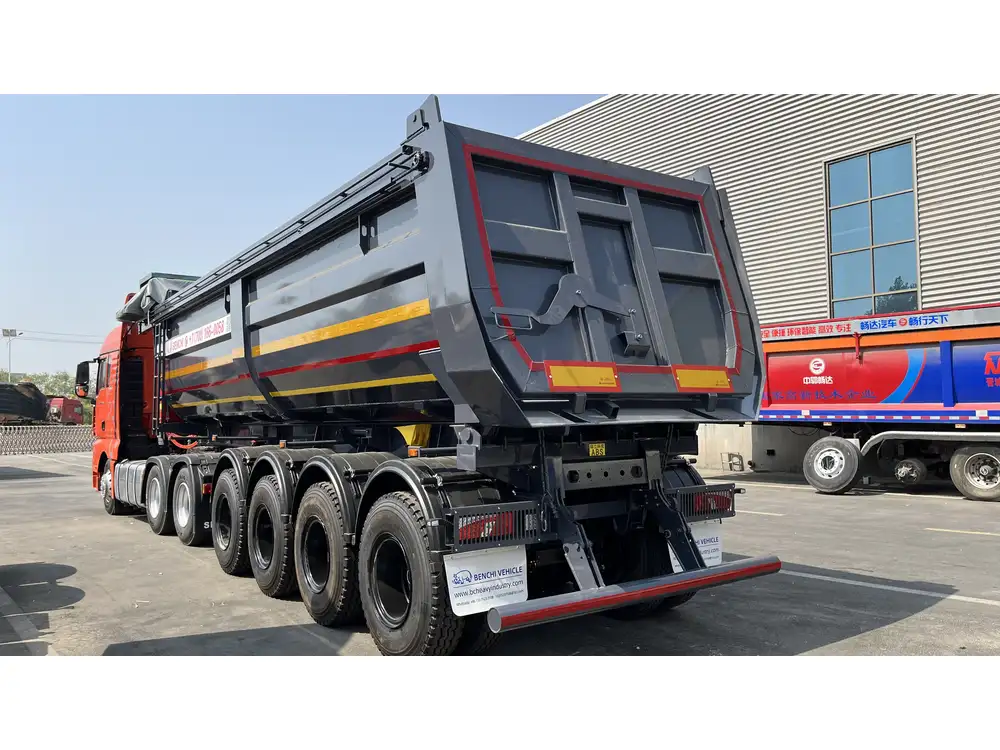
Key Points to Consider
- Check Title and Registration: Always confirm there are no liens against the trailer.
- Request Maintenance Records: These can give insights into the trailer’s condition and any previous issues.
- Arrange a Third-Party Inspection: Try to have an experienced mechanic inspect the trailer to identify potential problems.
5. Manufacturers
For companies looking for customized solutions, purchasing directly from a manufacturer can be the best route. Advantages include:
- Customization Options: Tailor the trailer to meet specific needs, whether it’s dimensions, load capacity, or additional features.
- Quality Assurance: Manufacturers provide assurance of reliability and adherence to safety regulations.
Consider visiting the manufacturer’s facility to discuss options directly with a sales representative and view various trailer designs and configurations.
Evaluating Your Options: Important Factors to Consider
Once you’ve identified potential sources for purchasing your semi-trailer, it’s time to evaluate the offerings. This assessment will help narrow down your choices and lead to a satisfactory purchase.
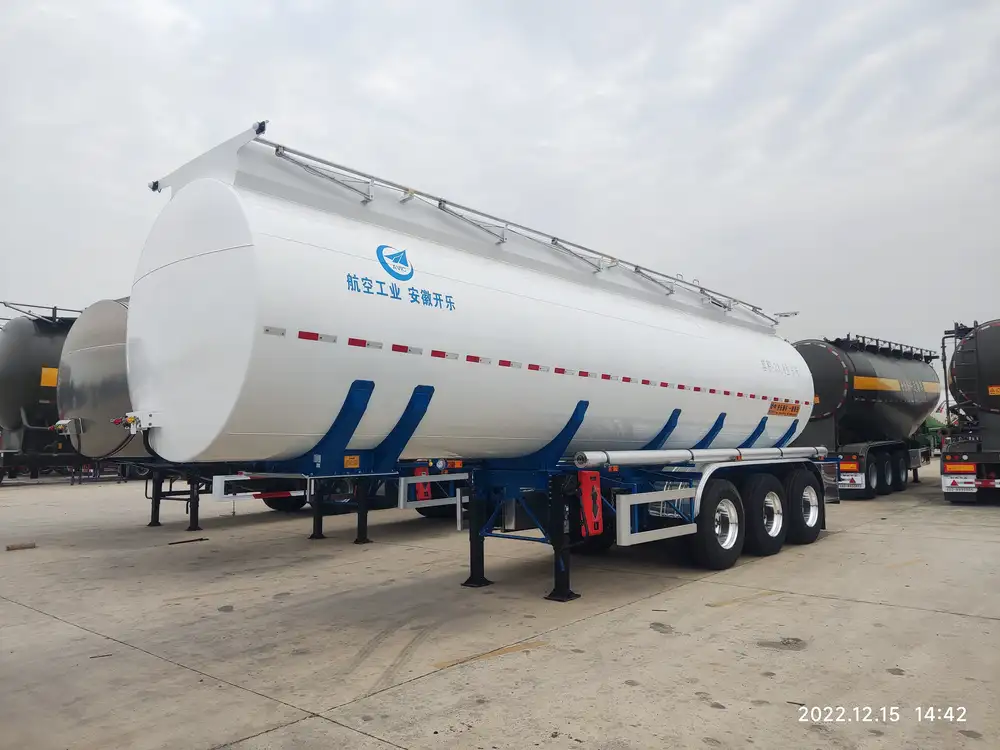
1. Price vs. Value
Understanding the difference between price and overall value is crucial:
- Compare Quotes: Gather quotes from multiple sources to assess the market rate for the specific trailer type you are considering.
- Consider Total Cost of Ownership: Factor in insurance, maintenance, and operation costs when determining affordability.
2. Quality and Durability
- Material Quality: Investigate the materials used in the trailer’s construction. High-quality steel and aluminum typically indicate better longevity.
- Brand Reputation: Brands known for reliability are typically a safer choice.
3. Regulatory Compliance
Ensure that any trailer you consider meets local DOT (Department of Transportation) regulations. Failing to comply can result in expensive penalties and operational disruptions.
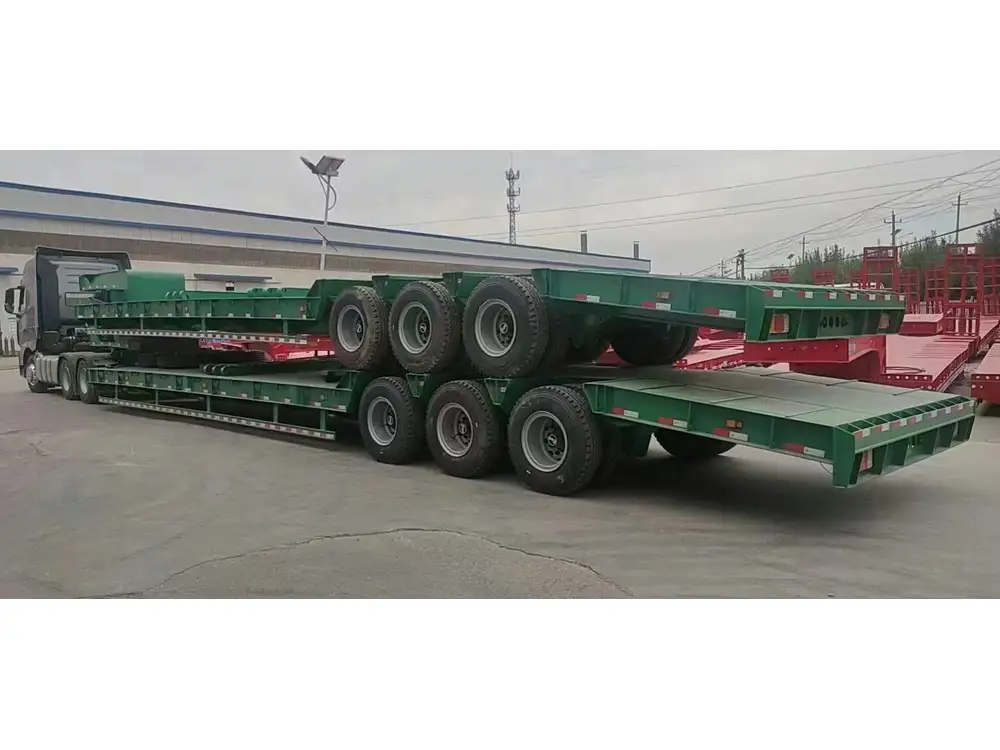
Conclusion: Making Your Purchase Decision
Armed with insights into where to buy a semi-trailer and how to assess your options effectively, you can confidently navigate the purchasing process. To recap:
- Identify the type of semi-trailer you need based on your specific cargo requirements and operational needs.
- Evaluate your purchasing options—dealerships, online marketplaces, auctions, private sellers, and manufacturers—each comes with its benefits and drawbacks.
- Consider critical factors during evaluation, such as price vs. value, quality and durability, and regulatory compliance.
By following these guidelines, you will position yourself to make an informed, strategic investment in a semi-trailer that will serve your business for years to come. Whether you’re searching for a flatbed, reefer, or any specialized trailer, the choice you make today will have a lasting impact on your operations and overall efficiency. Consider future-proofing your investment by opting for features that enhance usability and durability, ensuring your purchase stands the test of time.
Frequently Asked Questions (FAQs)
1. What is the average cost of a semi-trailer?
The cost can vary widely based on the type and specifications, but you might expect to pay anywhere from $10,000 to $60,000 for new trailers, while used models can be significantly less.

2. How do I know if a used semi-trailer is a good deal?
Conduct thorough inspections, check maintenance records, and compare prices with similar models in the market. Utilizing a third-party mechanic can provide additional assurance.
3. Are there financing options available for purchasing a semi-trailer?
Yes, many dealerships and manufacturers offer financing solutions, and there are specialized lenders who focus on commercial equipment financing.
4. Is it necessary to purchase a new semi-trailer?
Not necessarily. Used semi-trailers can represent great value, especially if they are well-maintained. However, new trailers offer more customization and warranty options.
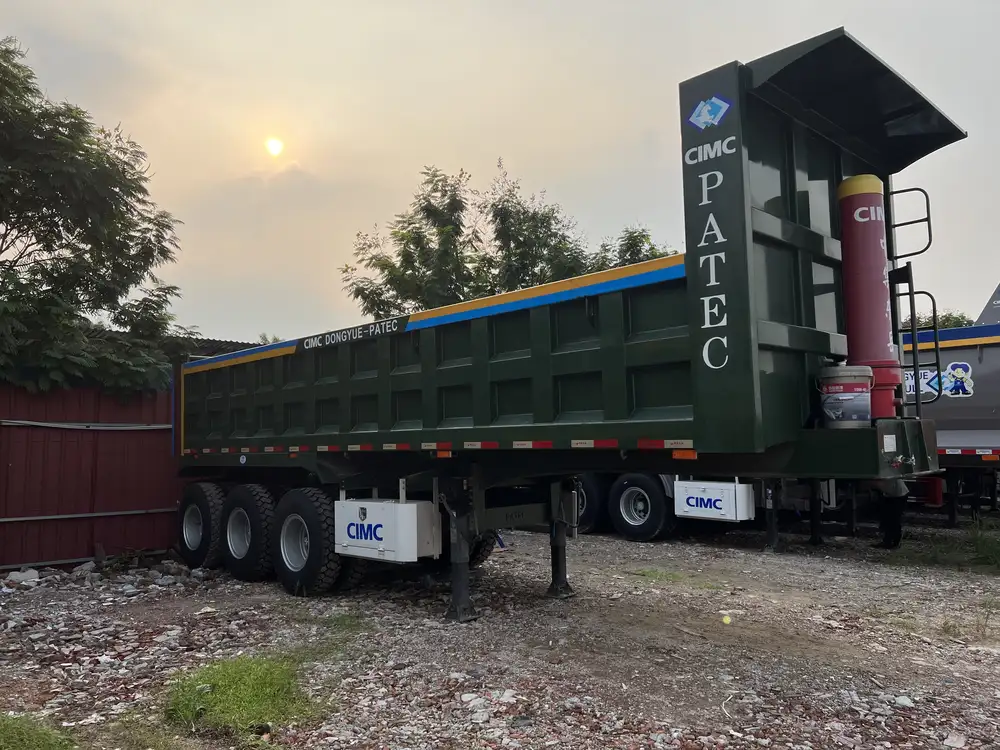
5. Can I customize my semi-trailer?
Absolutely! Many manufacturers allow for customization based on your specific needs, which can maximize the trailer’s utility and performance.
By preparing adequately and following this outlined approach, you are well-equipped to secure the ideal semi-trailer deal that aligns with your operational demands and business goals. Invest in the right equipment to drive your success forward and navigate the logistics landscape effectively.



